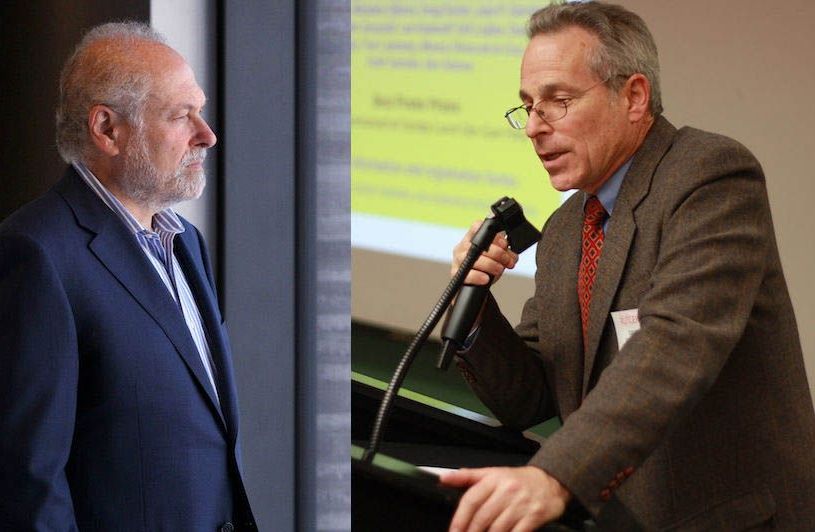Get the latest international news and world events from around the world.
Bank employs AI-powered ‘digital DNA human’
Bank employs AI-powered “digital DNA human”
Arab Banking Corporation (Bank ABC), in collaboration with New Zealand tech company, Soul Machines, has announced the launch of “Fatema” – a fully autonomous AI personality that will assist customers online.
This “digital employee” can accumulate experiences, learn, and respond to people individually, therefore adding human-like qualities to the AI. Fatema will work alongside Bank ABC’s mobile-only digital bank (to be launched by end of this year) to offer a multi-faceted, personalised customer experience.

A.I. musicians are a growing trend. What does that mean for the music industry?
The most prolific musical artists manage to release one, maybe two, studio albums in a year. Rappers can sometimes put out three or four mixtapes during that same time. However, Auxuman plans to put out a new full-length album, featuring hot up-and-coming artists like Yona, Mony, Gemini, Hexe, and Zoya, every single month. How? The power of artificial intelligence of course.
Before this goes any further, don’t worry: You’re not hopelessly out of touch with today’s pop music. Yona, Mony, Gemini, and the rest of the bunch aren’t real musicians. Well, at least not in the sense that you could meet them and shake their hands. They’re A.I. personalities, each with their own characters and genres, which have been created by Auxuman, an artificial intelligence startup based in London.
WATCH new YONA out now https://www.youtube.com/watch?v=gT2D5_CTzb4&feature=youtu.be pic.twitter.com/PMR6RFPMiu

SingularityNET and TODA partner to create scalable platforms for decentralized AI
Today, it was announced that the SingularityNET and TODA ecosystems will be joining forces to create scalable platforms and a product accelerator for decentralized AI.
The partnership brings blockchain AI pioneer SingularityNET and its enterprise-AI spinoff Singularity Studio together with TODA.Network and TODAQ from the TODA Protocol family.
Technical teams from both ecosystems are experimenting with bringing the two technologies together on the operational level, by building a “Singularity-on-TODA” system in which SingularityNET AI agents can optionally utilize the TODA protocol rather than Ethereum for their interactions.

Meet the cyborg artists who have merged themselves with technology
Neil Harbisson has an antenna implanted in his skull that allows him to feel colour, while Moon Ribas has sensors in her feet that allow her to feel earthquakes.
How Close Are We to Immortality?
Researchers are working to get to the bottom of longevity, unlocking the secrets to extending our lifespans well into our 100s… and beyond.
» Subscribe to Seeker! http://bit.ly/subscribeseeker
» Watch more How Close Are We | http://bit.ly/HCAWplaylist
» Follow Olivia on Instagram: instagram.com/OliviaPavcoG
Harvard Professor David Sinclair thinks longevity, or extending our lifespan, is the “greatest unsolved problem in biology.”
The global life expectancy is currently hovering somewhere around 72 years old and women typically live longer than men and the age tends to be higher in developed countries and lower in impoverished nations.
Some experts argue that the tools we currently have when it comes to extending our lifespans are as simple as diet and exercise, but a healthy diet is only going to get you so far. So scientists are seeking out clues in the natural world that could help us side step growing old, some scientists even think that many of the ailments we refer to as diseases could be thought of as the symptoms of aging.
So, in addition to improving our nutrition, sleep, social life, access to health care, and so on, what else can we do to increase our chances of immortality?
Find out more on this episode of How Close Are We?

How Will We Store Three Septillion Bits of Data? Your Metabolome May Have the Answer
For the “big data” revolution to continue, we need to radically rethink our hard drives. Thanks to evolution, we already have a clue.
Our bodies are jam-packed with data, tightly compacted inside microscopic structures within every cell. Take DNA: with just four letters we’re able to generate every single molecular process that keeps us running. That sort of combinatorial complexity is still unheard of in silicon-based data storage in computer chips.
Add this to the fact that DNA can be dehydrated and kept intact for eons—500,000 years and counting—and it’s no surprise that scientists have been exploiting its properties to encode information. To famed synthetic biologist Dr. George Church, looking to biology is a no-brainer: even the simple bacteria E. Coli has a data storage density of 1019 bits per cubic centimeter. Translation? Just a single cube of DNA measuring one meter each side can meet all of the world’s current data storage needs.
